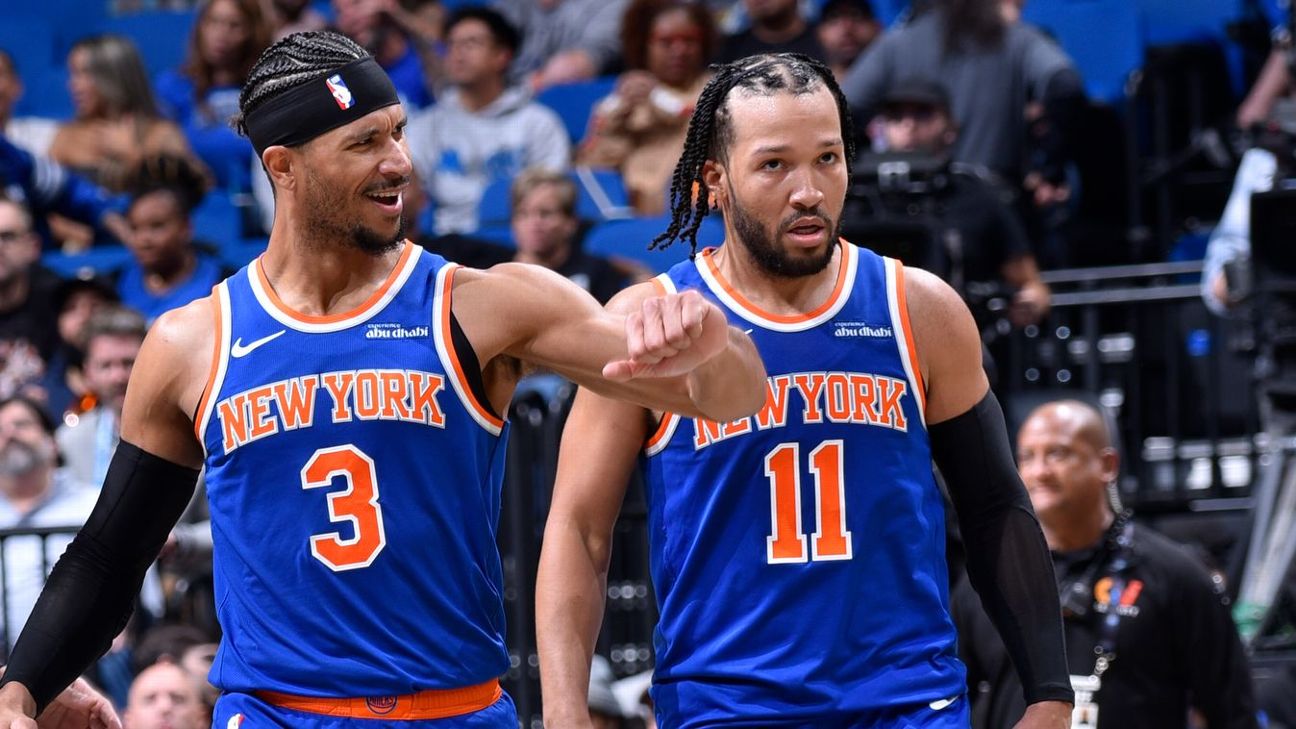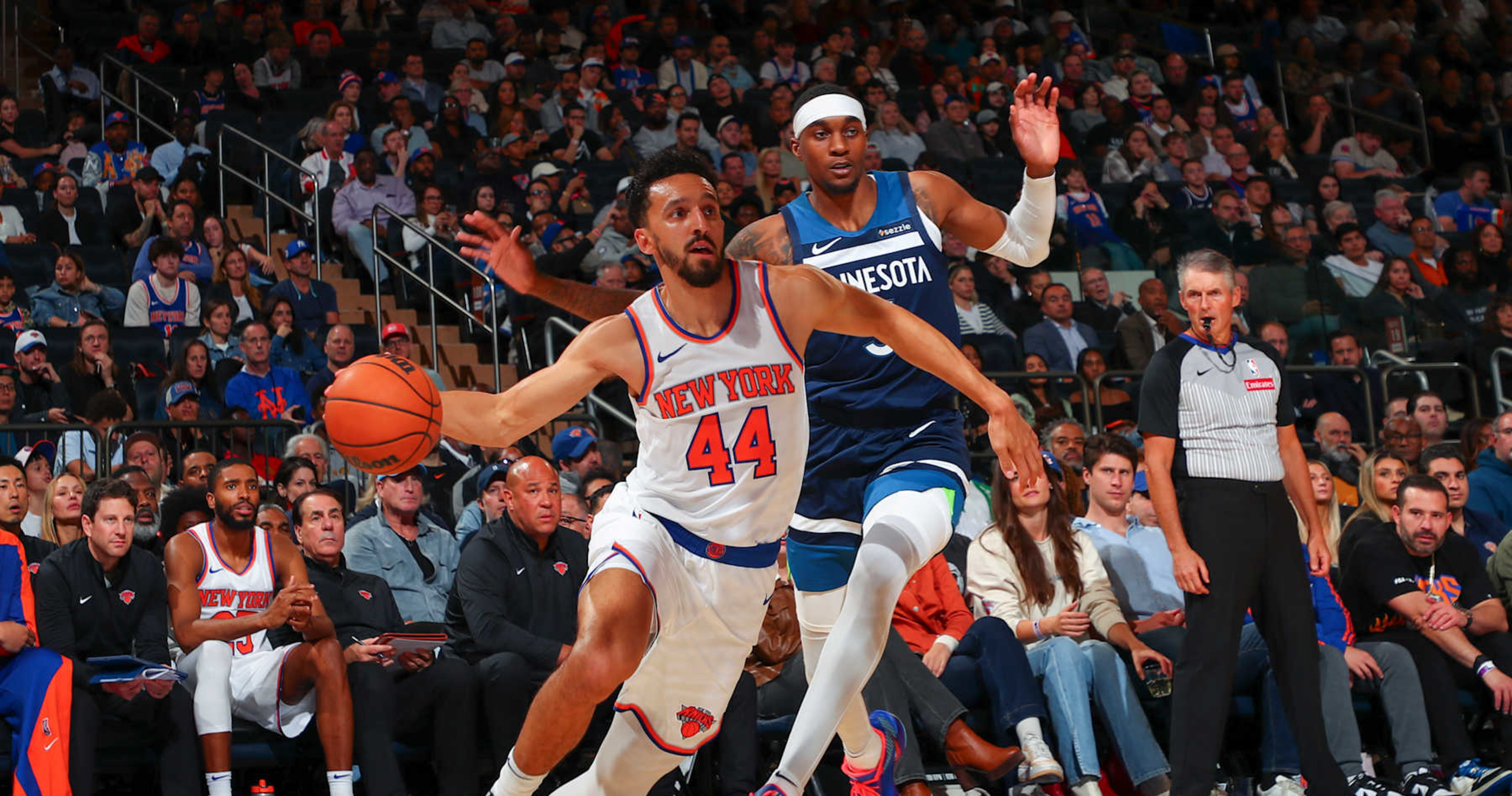Tennis
Coco Gauff knocked out of U.S. Open by Emma Navarro

NEW YORK — Coco Gauff’s Grand Slam season is over.
For the second consecutive time in a major tournament, Emma Navarro used her increasingly dangerous combination of steadiness, speed and power to beat Gauff, knocking her out in the fourth round of the U.S. Open, 6-3, 4-6, 6-3.
Navarro, 23, born in New York and raised in South Carolina, is fast becoming a major force in tennis. She smothered the defending champion in front of Serena Williams, Stephen Colbert, Michael Che and nearly 24,000 fans in Arthur Ashe Stadium, by turning an occasion that could have been decided by pressure, emotion, and drama into a contest of technique that Gauff was never going to win.
Navarro, who has shot up the rankings in the last year, became NCAA champion with the Virginia Cavaliers. Now she is the No. 13 seed at her home Grand Slam and rising still, her weaknesses falling away with each passing month.
“It’s pretty insane,” Navarro said. “This is the city I was born in and it feels so special to be playing here.”
This was always going to be a rough matchup for Gauff, not least because of the inevitable scar tissue from the loss at Wimbledon in July. Gauff entered that match as favorite, not just to beat Navarro, but to get to the final, with so many of the other top players having already fallen. Then Navarro appeared across the net, doing what she has done pretty much all year. She ran down ball after ball, extending rallies and simply refusing to miss, hanging in there long enough for Gauff’s Achilles heels — the instability of her forehand and of her serve — to let her down.
On Sunday, she brought all that and more. Block returns of Gauff’s 120 mph serves went deep enough to send her backpedaling. Stab returns of seeming winners stole points. And on a warm, still and humid afternoon, she proved that her fitness is equal to that of Gauff, who is known as just about the fittest player in the sport.
Gauff didn’t help herself, double-faulting 19 times, often in key moments. Two double faults gave Navarro a service break in the first set, and another midway through the second gave Navarro another break point. When she caught up with a Gauff drop shot and looped a forehand down the line for the winner, it looked to be the end.
Then came the wobble.
Two ugly service games, filled with wild forehands and tentative shot-making, that gave Gauff a second life when all had seemed lost. She put her finger to her ear to get some more noise when she got the first service break, asking the crowd that had willed her to a trophy 12 months ago to do it all again.
GO DEEPER
Old friends know best: Why Coco Gauff will be least surprised at defeat to Emma Navarro
It was a risky move against a friend, compatriot and Olympic teammate, but she needed all the help she could get. And she certainly didn’t try to quiet anyone down when she drew even and the stadium exploded for her.
“It was tough losing the second set. I had chances,” Navarro said.
The reprieve for Gauff was brief. A slew of double faults, including two to give Navarro the early service break in the deciding set, stalled her momentum and doomed her. Navarro cleaned up her act found new life her legs, and this time didn’t let the good fortune of Gauff’s gifts slide off her racket.
“Coco’s an amazing player. I know she’s going to come back and win this thing again one year,” Navarro said.

Emma Navarro’s rock-solid game was too much for Coco Gauff in Arthur Ashe Stadium. (Robert Prange / Getty Images)
For Gauff, the loss is the latest in a disappointing summer that began with a semifinal defeat to the world No. 1, Iga Swiatek, at the French Open. For months before that, going back to August of 2023, before she fell to the ground in triumph in this stadium, she had been one of the more bankable players in the game. She hadn’t cured herself of her weaknesses, but she’d found some ways to hide them, playing safer, high-arcing forehands to make her points longer and her matches more physical.
She started pulling her toss further back on her serve, not trying to charge into the court.
Since that loss to Swiatek, opponents have found ways to combat her new strategies. The shakiness in her game that those strategies steadied has reappeared. Gauff has been making early exits, for her anyway, and in some losses, the mounting tension between her and her lead coach, Brad Gilbert, has been impossible to miss.

Coco Gauff’s forehand broke down under pressure from Emma Navarro’s flowing groundstrokes. (Angela Weiss / AFP via Getty Images)
In the loss to Navarro at Wimbledon, Gauff pleaded with Gilbert to give her some plan to stave off the inevitable. In a win earlier this week, she chided Gilbert and everyone else in the box to stop talking to her.
There was little visible tension between Gauff and her box Sunday. But long-lasting relationships between coaches and players have become increasingly rare.
For Navarro, this win is a new, firm data point to back up the longer-standing, softer feeling that these two players may spend a lot of time together going forward, at the top of the rankings and in late rounds of the biggest tournaments. Navarro is three years older than Gauff, but they have known each other, and been friendly, since their early years in junior tennis. Gauff was a prodigy then, playing two and three age-groups up, and Navarro was merely a normally gifted player.
Everything about them appears in contrast. Gauff is a product of the expanding Black middle class. Navarro is the daughter of a banker, and her family is among the wealthiest in the country.
Gauff was winning matches at Wimbledon at 15, beating Venus Williams in 2019.
Navarro went to college, a later bloomer thanks to her reputation as one of the hardest-working players in the game.
The match ended on her terms.
Gauff double-faulted for match point. Then she missed a first serve.
From the second, Navarro thumped a return deep, and Gauff’s forehand erred again.
(Top photo: Robert Prange / Getty Images)









